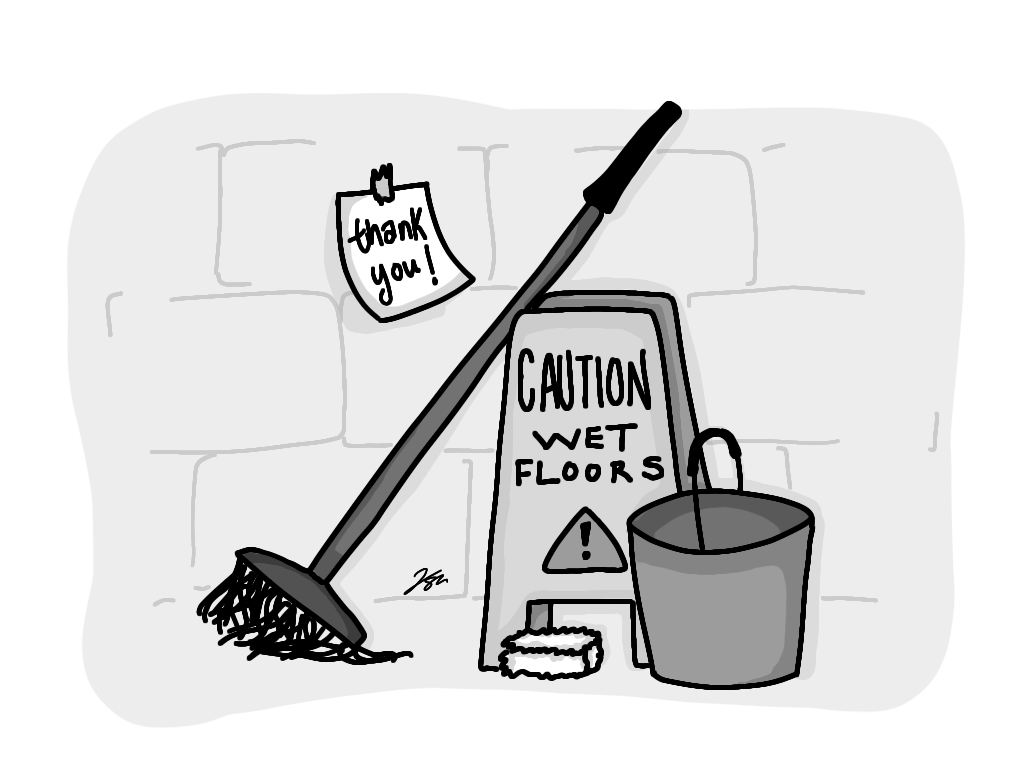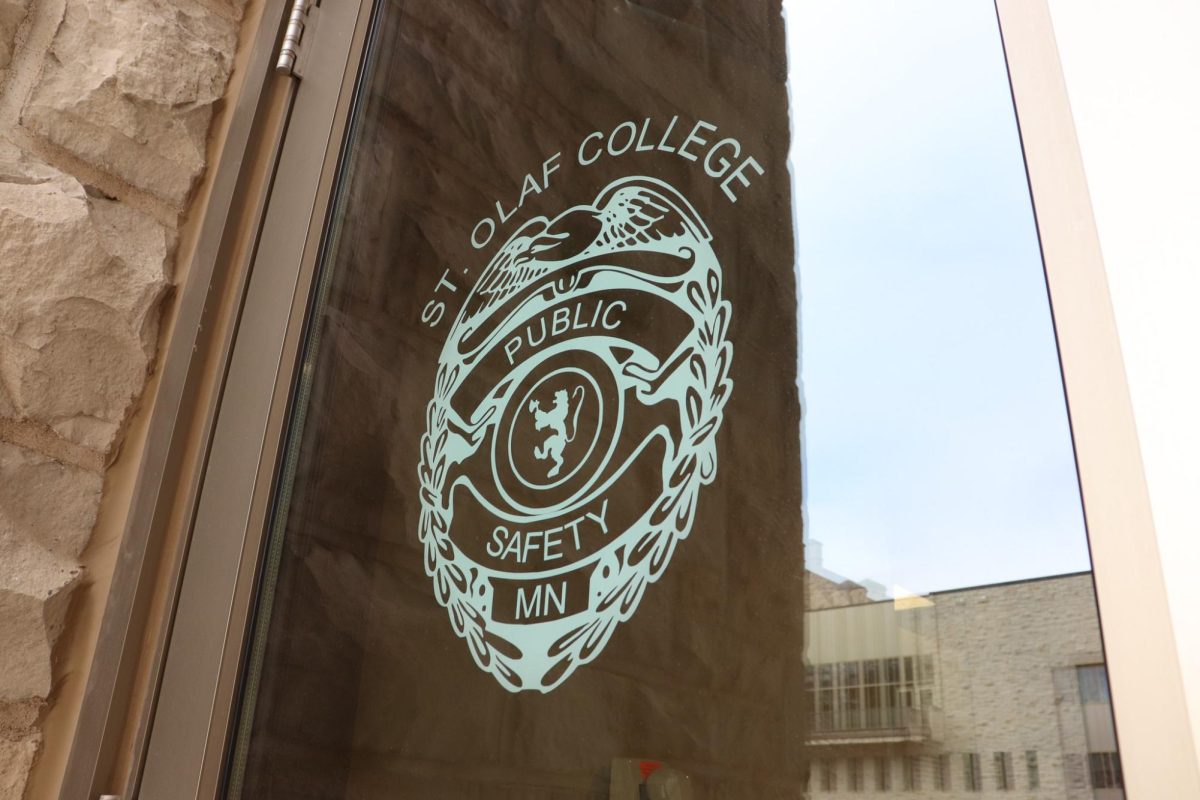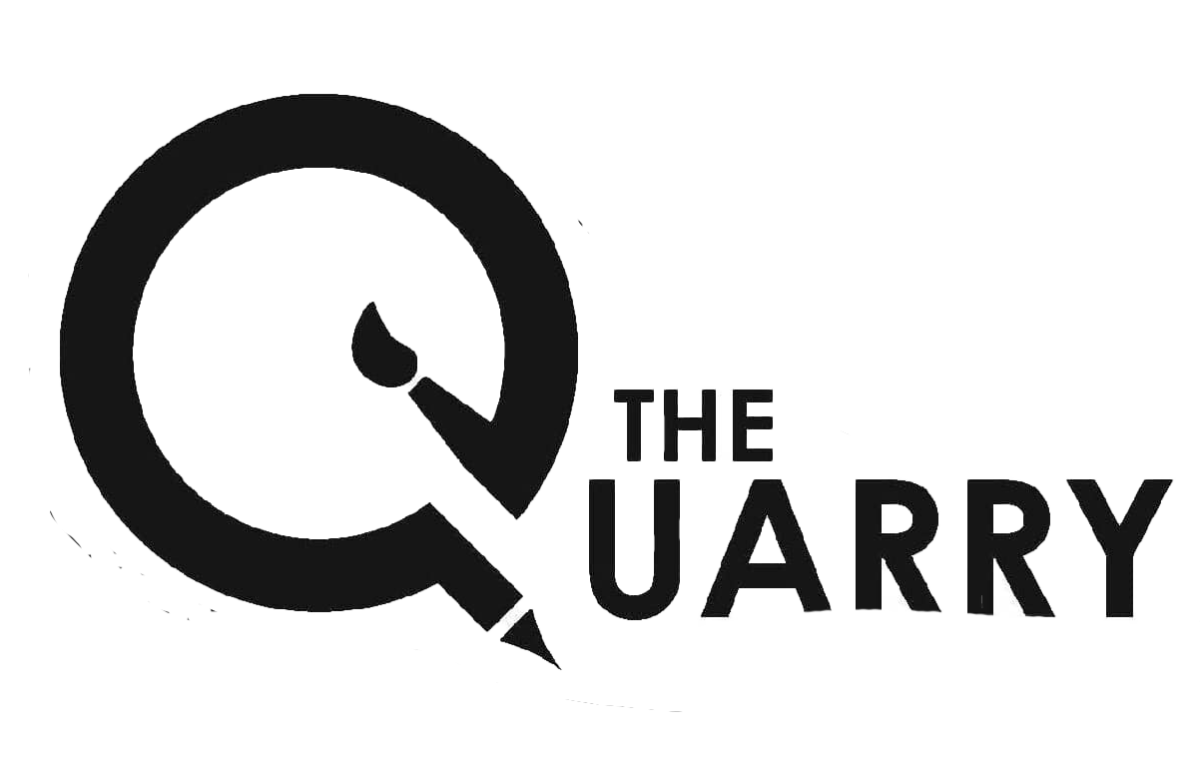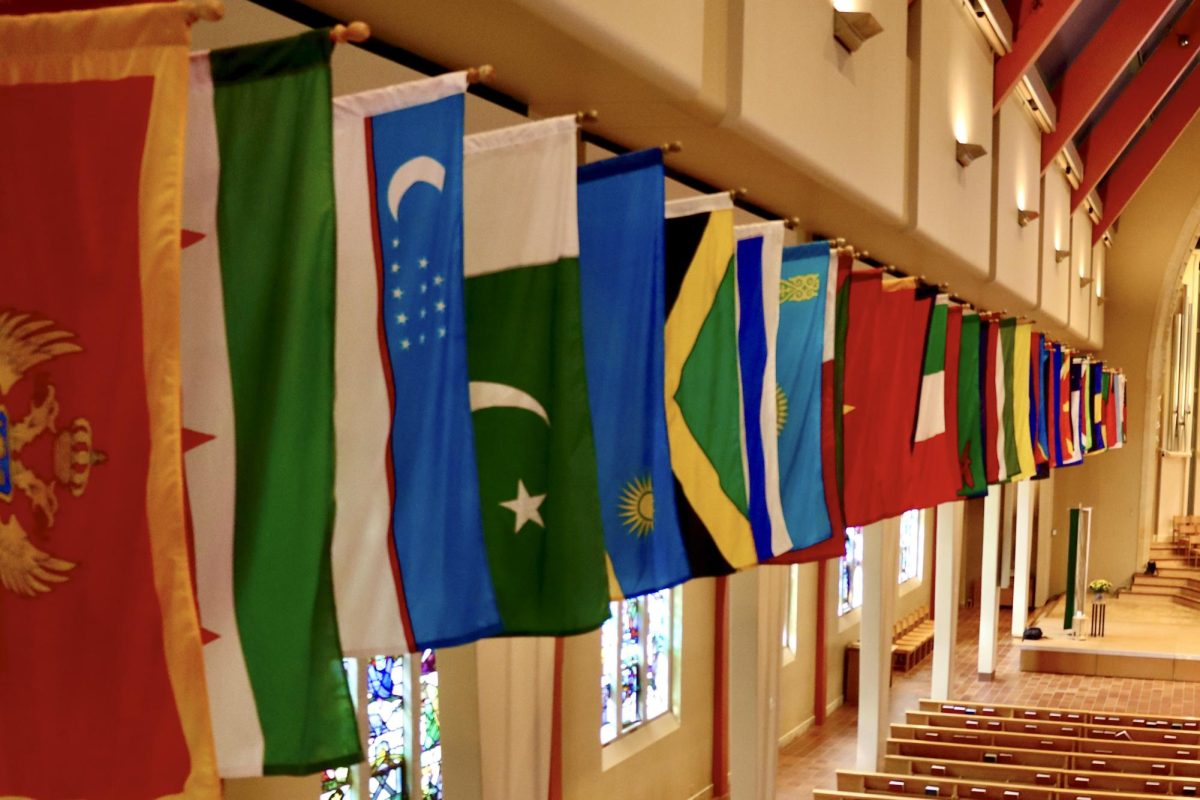The long, simmering conflict between Palestine and Israel erupted into violence this summer, throwing the region into chaos and raising questions about the legitamacy of Israel’s claims on the land. On Sept. 9, over 50 students and faculty met in the Black and Gold Ballroom to discuss the situation.
Students seemed eager to gain a holistic understanding of the war from professors in pertinent fields. Assistant Professor of Sociology Ibtesam Al Atiyat and Associate Professor of Political Science Anthony Lott shared their expertise on the complex issue. Emma Youngquist ’15, Political Awareness Committee PAC Coordinator, welcomed the guests and provided a short introduction of the two panelists.
Atiyat’s perspective on the war reflected her Palestinian and Jordanian heritage. Her academic specialization is the Arab world and global interdependence. In her introduction, she addressed the American media coverage of the conflict.
“I am concerned about the information Americans were getting about the events,” she said.
She expressed her worry about what she called the ill-informed, biased and superficial essence of the news. She questioned the reliability and accuracy of the journalists reporting back to the States.
“Quasi-experts with six months training are being sent to the Middle East to tell us the news…This is extremely dangerous and alarming,” she said.
Atiyat then offered an impassioned defense of the Palestinians and their claim to the Gaza Strip. Israel acquired Palestine in 1967 and, as a result, many Palestinians lost homes and political rights.
“Nobody spoke against the occupation of a state against international law,” Atiyat said. She noted that the occupation of Palestine is too often ignored.
“What gets to the media are oftentimes selected pockets of history,” she said.
She focused on Israel’s occupation of Palestinian land and Palestine’s subsequent defense. She justified the Palestinian right to revolt, questioning Israel’s right to defend land taken illegitimately from another people.
At the end of her argument, she mentioned her Palestinian grandmother’s inability to return home from Jordan due to the war. She became emotional and said that Israel’s power over Palestine was and is still “delegitimizing the Palestinians’ right to exist.” In her closing, Atiyat implored U.S citizens to take action and help change the rhetoric of Western media regarding the conflict.
Youngquist then introduced Professor Lott to offer his opinion. Lott began by acknowledging Atiyat’s superior knowledge on the subject and the region. He added that he would provide an analysis of the information found on the United Nation’s website based on his expertise in public international law.
He quickly disagreed with Atiyat’s opinion that it is the responsibility of U.S. citizens to change the media coverage of the conflict.
“It is the international community at large that needs to and can make that change,” he said.
Using the United Nation’s summer 2014 data, Lott provided a legal understanding of the war. He stated that 2,100 Palestinians were killed, and of that number, 1,460 were civilians and 500 were children.
Lott went on to criticize the Israeli military’s seeming disregard for the international law regarding noncombatant immunity, which states that soldiers must avoid targeting civilians at all cost.
“This is a cascading violation of international law,” said Lott. He noted that two thirds of Palestinian casualties have been civilians.
These numbers stand in stark contrast to the Israeli casualty figures: 72 Israelis died and 66 of them were soldiers.
He described Israel’s plan as ethnic cleansing and informed the audience that this too violates international law. Lott concluded with a description of the United Nations’ role and its relationship to the United States as a hegemon.
With 10 minutes remaining, Youngquist opened the floor to questions. Most questions focused on the United States’ relationship with Israel. This included the U.S. government’s financial support of Israel’s military, Israel’s influence on public policy in the United States and the existence of think tanks that support Israeli media.
Weekly dinner discussions, hosted by PAC, are every Tuesday between 5:30 p.m. and 6:30 p.m. Email [email protected] for more information on activities coordinated through St. Olaf College’s P.A.C.





